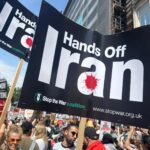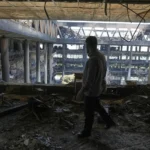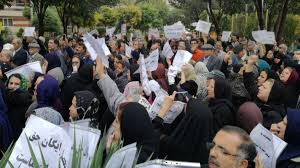
In a country where the ruling regime has declared an unending and suffocating war against organised labour, teachers have built and shored up the only trade union body that effectively coordinates on a national level with activities right across Iran.
As a result, the union representing teachers and education workers is particularly prominent in the continuing struggle being waged inside Iran. However, the price its members have had to pay for this has been high…
In the past 10 years, there has not been a day that a teacher somewhere in Iran has been summoned to appear before one of the regime’s courts or prosecutor’s offices, unjustly imprisoned, or forced into exile on account of their activities.
Many activists of the Iranian Teachers’ Trade Association (ITTA) and its Coordinating Council (CCITTA), the trade union for teachers and education workers in Iran, upon reaching a level of prominence, have been sacked or forced into retirement, blacklisted, jailed on bogus charges of having “endangered national security” through their activities, or otherwise faced the direct wrath of the regime’s dreaded security forces.
Ismail Abdi, Secretary General of the ITTA was one such activist to have suffered under the arbitrary application of the Islamic Republic’s draconian national security laws. In June 2015, Mr. Abdi attended the prosecutor’s office at Evin Prison to enquire why he had been banned from travelling abroad. He had been due to travel to neighbouring Armenia to apply for a visa to attend the 7th Education International (EI) World Congress in Ottawa Canada, to which he had been invited as an honoured guest, the following month. Instead, he was detained and transferred to the prison’s notorious Section 2A run by the intelligence unit of the Islamic Revolutionary Guard Corps (IRGC) and subjected to 17 days of continual interrogation and torture without access to a lawyer or anyone on the outside. He was accused of “organising and participating in illegal gatherings”, which is not a recognised offence under Iranian law, before being convicted on national security grounds, thus activating a 10.5-year suspended sentence he had received in 2010 similarly on account of his trade union activities. Mr. Abdi was subsequently jailed for eleven months before being bailed on a huge sum before being re-arrested and imprisoned for his continued activities as well as his outspokenness regarding his union’s righteous demands and the appalling treatment of his fellow activists. Ismail Abdi has spent much of the last decade in prison and is thus regarded as one of the country’s most prominent political prisoners. He was released on bail in October 2023.
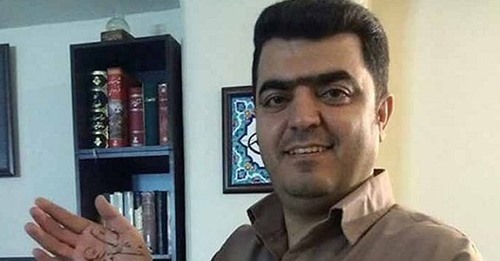
Rasoul Bodaghi is another well-known teacher activist to have borne the Islamic Republic regime’s harsh repression of the CCITTA. Mr. Bodaghi, a member of the board of directors of the CCITTA and a long-time activist for teachers’ rights to freedom of association and peaceful assembly in Iran, was arrested with other teachers on the eve of planned activities and protests to mark Teachers’ Week in May 2022. He was well-known to the regime’s security forces having been arrested and detained several times previously on account of his trade union activism and as a former member of Iran Human Rights Activists. Mr. Bodaghi was placed in solitary confinement in Ward 240 of Evin Prison where he remained for more than a month. Having been originally charged on national security grounds, there were legitimate fears that the regime was looking to execute him, and an international campaign was launched to put pressure on the authorities in Iran. Mr. Bodaghi was subsequently moved back to a general ward in Evin and sentenced to 4.5 years for “assembly and collusion against national security” and an additional year on the charge of “propaganda against the state” as well as subsequent two-year ban on residing in Tehran or any neighbouring province upon release. In a letter published from inside prison, Rasoul Bodaghi wrote, “I and my colleagues spent 120 days in such a condition in wards 209 and 240 of Evin Prison, where we could hardly tell the difference between day and night. Asking a guard for the time was responded to by an insult. It was a dream for us to see a smile from a fellow human being, to hear the voice of a human, or even a bird […] For 120 days, we did not know who was imprisoned in the cell next to us. Sometimes the pleading cries of an innocent man or teenager would rub salt on our wounded hearts.”
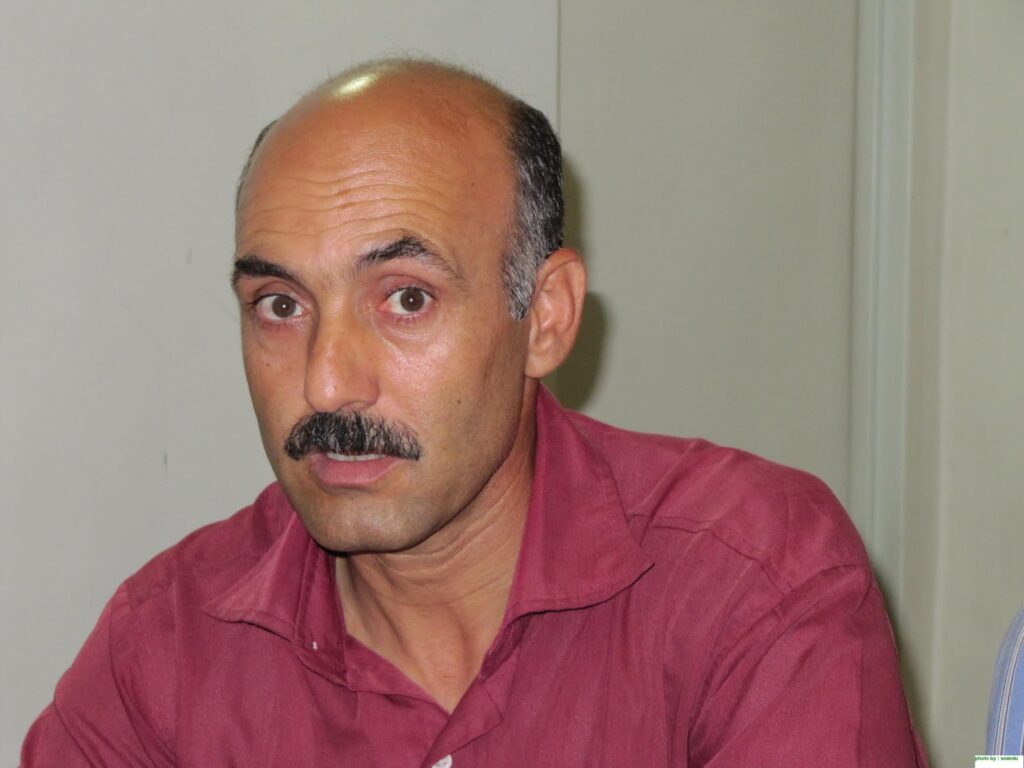
The CCITTA has also recently condemned the unlawful dismissal from post, blacklisting, and persecution of Shiva Amelirad, one of its prominent members and a well-known teacher and esteemed member of the Teachers’ Trade Association of Marivan. “With over 18 years of invaluable teaching experience, Ms. Amelirad has played a pivotal role in shaping the educational landscape of Kordestan province and Iran,” read a statement issued by the CCITTA. According to the same statement, it is believed the main reason for the sacking of Ms. Amelirad was her receiving of the Gwangju Prize for Human Rights, in South Korea, on behalf of the CCITTA – awarded for its relentless campaign for quality free education as well as fair pay and conditions of service for teachers in Iran. “The decision to expel Shiva Amelirad appears to be a direct response to the recognition given to the CCITTA and a blatant attempt to stifle the voices of educators and trade union activists in Iran,” continued the statement. The CCITTA subsequently moved to mitigate Ms. Amelirad’s dismissal by appointing her as its senior representative for liaison with Education International (EI) and other global teacher trade union and professional bodies.
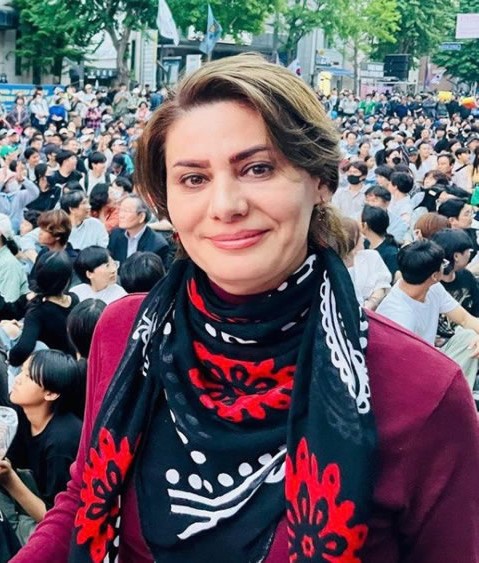
Conversely, the reward for the teacher activists’ steadfast dedication to defending their profession and colleagues, as well as quality and standards in the state education sector, has been the elevation of the CCITTA to the position of highly respected social actor and force inside Iran. The teaching union occupies a place of high esteem in the eyes of much of the Iranian public. In addition to the relentless pursuit of its core grievances – namely the poor wages and resourcing of Iran’s crumbling state education sector and the horrendous treatment of fellow teacher trade unionists – the CCITTA has become a prominent and respected agitator for wider trade union, democratic, and human rights, as well an end to the dictatorship in Iran. This saw the organisation take a stance of active support for the protesters during the ‘Woman, Life, Freedom’ popular uprising of 2022-2023, culminating in its co-authoring of the 12-point Freedom Charter, signed by 19 other civic organisations, in February 2023 – widely regarded as the authoritative and bona fide articulation of the movement’s core demands and a blueprint for transition away from the Islamic Republic dictatorship endorsed by the main opposition currents inside Iran. The CCITTA were the first signatory to the Charter.
“CODIR calls upon the NEU, NASUWT, UCU, and other trade unions to show their principled support for, and solidarity with, their beleaguered counterparts in Iran. We likewise call upon the support of democratic, progressive, and pro-peace forces around the world for the popular anti-dictatorship struggle inside Iran.”
This article was published first as part a more extensive feature in the May 2024 issue of Education for Tomorrow







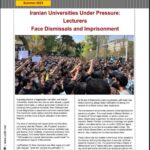





 Posted in
Posted in 

